Thakshila YS1, Suraweera C2
1Department of Allied Health Sciences, Faculty of Medicine, University of Colombo, Sri Lanka.
2Department of Psychiatry, Faculty of Medicine, University of Colombo, Sri Lanka.

University education represents a specific chapter of an individual which is not only limited to studying and passing exams. It consists of learning activities extending through a wide spectrum of independent decision making and collaborative work. The University is the place where the students meet people of different cultures, attitudes and personalities and start to function as independent individuals.
Starting university education – a stressful period
Students in their first year of university, popularly known as ‘freshers’ often have to adapt to a new lifestyle in a whole new environment. This could be quite stressful for these individuals because of all the learning, examinations, peer pressure and living away from the protective environment of the family. Significant psychological distress among first year undergraduates may also be expected due to a switch in teaching – learning methods from school education to university education, thereby leading to changes in their academic performance. Often students struggle with time management while adapting to the new environment. It is common for many to compromise their sleep in order to fulfill their activities, especially their studies. [1] Poor sleep is a predictive symptom of illness which could be a primer to reduced quality of life. Therefore, sufficient and restorative sleep is very important in maintaining mental and physical wellbeing. [2] (Figure 1) There is a strong relationship between quality of sleep, stress and coping strategies and it has been shown that selection of coping strategies is affected by the quality of sleep both directly and indirectly.
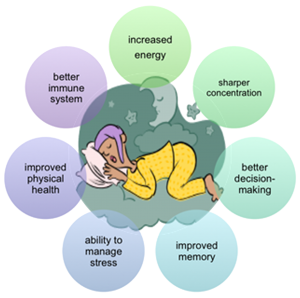
Figure 1 Importance of good night sleep
A study to assess sleep and stress.
A cross sectional study was conducted among 200 first year students from five selected faculties of the University of Colombo. The students were very interested in participation and participated voluntarily with informed consent. A self-administered questionnaire was given to them which contained well known study tools such as the Pittsburg Sleep Quality Index (PSQI), Depression Stress Anxiety Scale-21(DASS 21) and brief COPE inventory.
Our findings showed that…
- 5% of female undergraduates have poor sleep quality
- The highest percentage of poor sleep quality was reported by students from Law faculty (Figure 2)
- 63% of students sleep less than seven hours
- 86% of freshers unable to fall asleep within fifteen minutes
- More than half the population had some form of stress ranging from mild, moderate, severe to extremely severe(Figure 3)
- The highest percentage of stressed students were in the medical faculty
- The commonest coping strategies were self blaming, looking for emotional support, denial and planning
- There was a significant relationship between quality of sleep, stress and coping
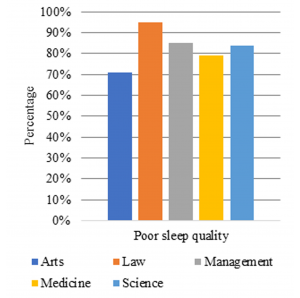
Figure 2 The percentage of students with poor sleep quality by faculties in university
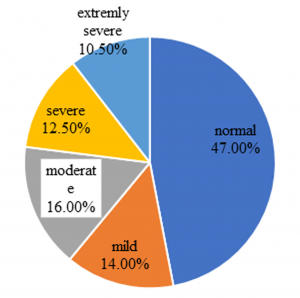
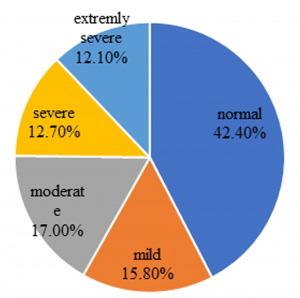
Figure 3a Stress level among participants Figure 3b Stress level among poor sleepers
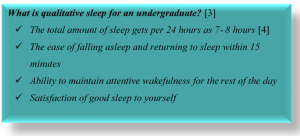
Recommendations from our study
The study highlights the need for programmes among undergraduates which focuses on sleep hygiene and ways of strengthening individual coping abilities. Health promotion activities focused on both mental and physical health including sports, aesthetic events and sharing experiences in between should be encouraged without sticking to a rigid study frame. More studies with larger populations and wider coverage of universities is essential as sleep deprivation is likely to be a common problem in other universities as well.
References
- Foulkes L, McMillan D, Gregory AM. A bad night’s sleep on campus: an interview study of first-year university students with poor sleep quality. Sleep health. 2019 Jun 1;5(3):280-7.
- Lund HG, Reider BD, Whiting AB, Prichard JR. Sleep patterns and predictors of disturbed sleep in a large population of college students. Journal of adolescent health. 2010 Feb 1;46(2):124-32.
- Buysse, D. J. (2014) ‘Sleep Health : Can We Define It ? Does It Matter ?’, Sleep, 37(1), pp. 9–17.
- Hirshkowitz M, Whiton K, Albert SM, Alessi C, Bruni O, DonCarlos L, Hazen N, Herman J, Katz ES, Kheirandish-Gozal L, Neubauer DN. National Sleep Foundation’s sleep time duration recommendations: methodology and results summary. Sleep health. 2015 Mar 1;1(1):40-3.
